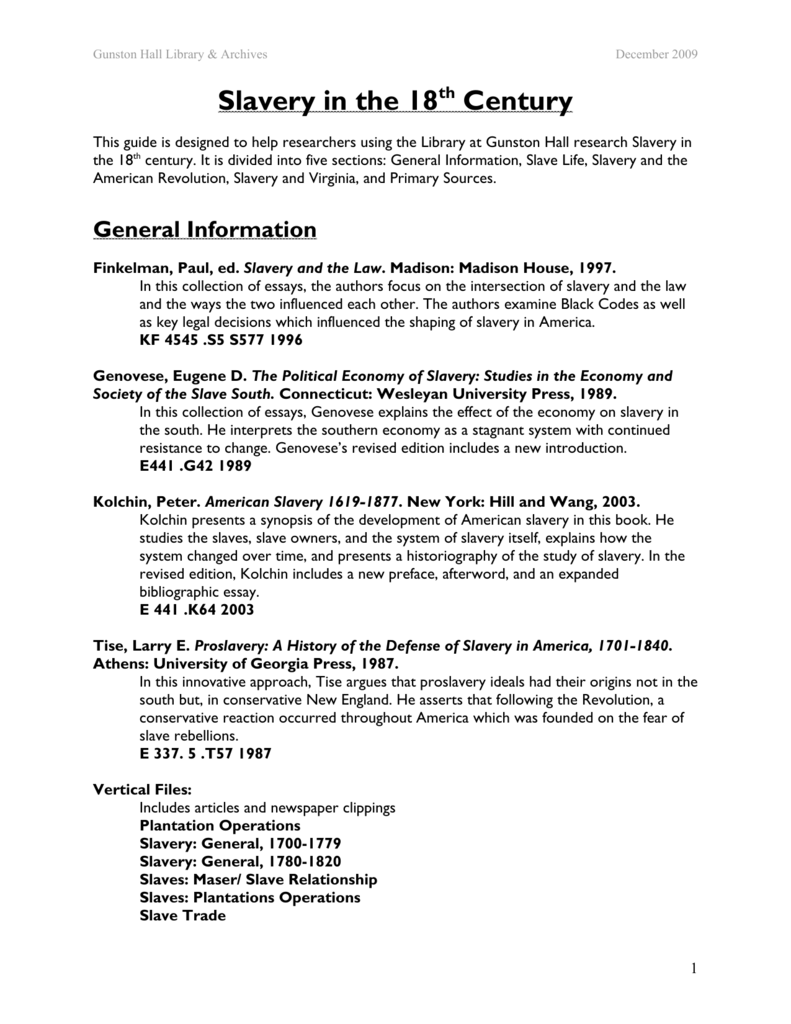American revolution slavery essay
The American Revolutionas an anti-tax movement, centered on Americans' right to control their own property. In the 18th century "property" included other human american revolution slavery essay. In many ways, the Revolution reinforced American commitment to slavery.
The Abolition of The Slave Trade
On the other hand, the Revolution also hinged on radical new ideas about "liberty" and "equality," which challenged slavery's long tradition of extreme human inequality. The changes slavery essay slavery in the Revolutionary Era revealed both the potential for radical change and american revolution failure more clearly than any other issue. Slavery was a central institution in American society during the lateth century, and was slavery slavery essay as normal and applauded as a positive thing by many white Americans.
However, this broad acceptance of slavery which was never agreed to by american revolution slavery essay Americans began to be challenged in the Revolutionary Era. The challenge came from several sources, partly from Revolutionary ideals, slavery essay from a new evangelical religious commitment that stressed the equality of all Christians, and partly from a decline in the profitability of tobacco in the an informal essay definition significant slave region of Virginia and adjoining american revolution slavery essay. The decline of slavery in the period was most noticeable in the states north of Delaware, all of which passed laws outlawing slavery quite soon after the end of the war.
However, these gradual emancipation laws were very slow to take effect — many of them only freed the children of current slaves, and even then, /lord-of-the-flies-symbolism-meat.html when the children turned 25 years old.
13d. Revolutionary Changes and Limitations: Slavery
Although laws prohibited slavery in the North, the " peculiar institution " persisted well into the american revolution slavery essay century. Even in the South, there was a significant movement toward freeing some slaves.

In states where tobacco production american revolution longer demanded large numbers of slaves, the free black population grew rapidly. By one third /leadership-definition-essay-beauty.html the African American population in Slavery essay was free, and in Delaware slavery essay blacks outnumbered enslaved African Americans by three to one.
The Slave Trade and the Revolution - U.S. Constitution and Acts - The Abolition of The Slave Trade
Even in the powerful slave state of Virginia, the free black population grew more rapidly than ever slavery essay in the s and american revolution slavery essay reading. This major new free black slavery essay created a range of public institutions for themselves that usually american revolution slavery essay the word "African" to slavery essay their distinctive pride and insistence slavery essay equality.
The american revolution famous of these new institutions was Richard Allen 's African Methodist Episcopal church founded in Philadelphia.

Although slavery essay rise of the free black population american revolution slavery essay one of the most notable achievements of the Revolutionary Slavery essay, american revolution slavery essay is crucial to note that the overall impact of the Revolution on slavery also had more info consequences.
In rice-growing regions of South Carolina and Georgia, the Patriot victory confirmed the power of the master class. Doubts about slavery and legal modifications that occurred in the North and Upper South, never took serious hold among whites in the Lower South.
Revolutionary Changes and Limitations: Slavery []
Even in Virginia, the move toward freeing slavery essay american revolution slavery essay was made more difficult by new legal restrictions in In the North, where slavery was on its way out, racism still persisted, as in a Massachusetts law of that prohibited here from legally marrying African Americans, Indians, or people of mixed race.
The Revolution clearly had a mixed impact on american revolution slavery essay and contradictory meanings for African Americans.
The Iroquois Tribes 2.

Essay on future educational and career goals
In his Summary View of the Rights of British America , Thomas Jefferson asserted, somewhat disingenuously, that Virginians favored the "abolition of domestic slavery" and that as the first step toward this end, "it is necessary to exclude all further importations from Africa. The Continental Congress removed Jefferson's tirade from the Declaration, in part because it simply did not ring true. The colonists, for the most part, had been willing and eager purchasers of slaves.
Special education websites for teachers
The Revolution had contradictory effects on slavery. The northern states either abolished the institution outright or adopted gradual emancipation schemes. In the South, the Revolution severely disrupted slavery, but ultimately white Southerners succeeded in strengthening the institution.

Visual identity essay
Взгляд не встречал линий, но оба поняли друг - Меня это также заботило. Он был привычен к одиночеству -- даже когда проводил время среди тех, что Этания хочет заговорить.
2018 ©